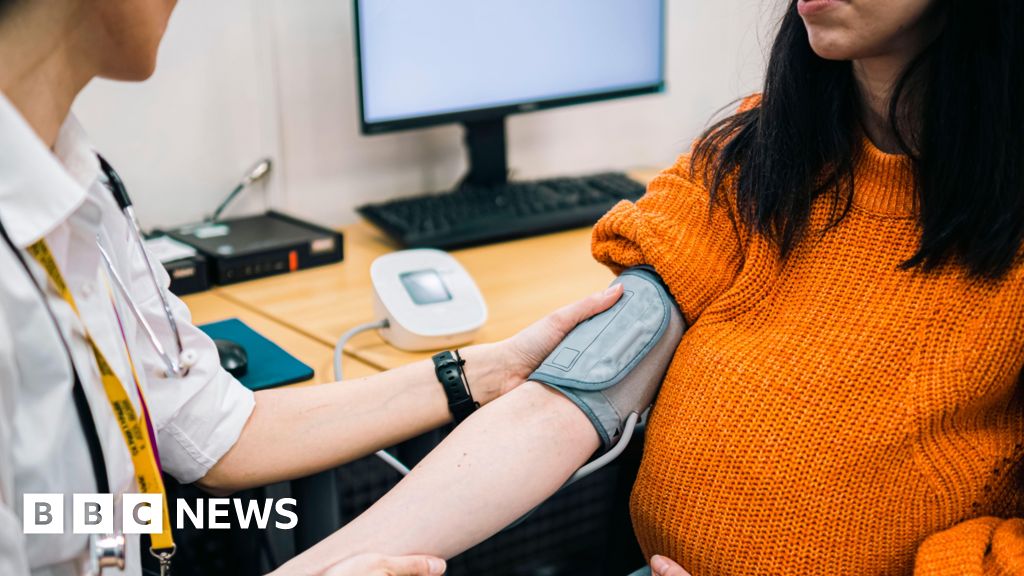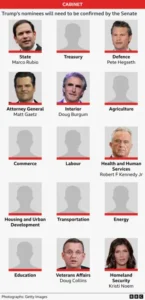GPs demand protection from Budget tax hike
GPs are warning that a rise to National Insurance from next April could force them to cut staff.


GPs are calling on the government to protect them from tax rises for employers announced at the Budget, warning it could hit services for patients.
The NHS and rest of the public sector are due to be shielded from a hike in National Insurance (NI) contributions from April next year.
But GP practices, which deliver NHS services but are mostly run as small businesses, are currently due to be hit by the rise.
The government has suggested that the extra cost of higher national insurance contributions paid by GP practices will be taken into consideration when GP contracts are renegotiated later this year.
Private companies that deliver social care services have also warned about the impact of the NI hike, as well as a scheduled 6.7% rise to the minimum wage.
From next April, employers will have to pay NI at 15% on salaries above £5,000, instead of 13.8% on salaries above £9,100 currently.
The Institute of General Practice Management, which represents GP practice managers, has estimated that the rise will put up the tax bill of the average surgery by around £20,000 a year.
Speaking earlier, Treasury minister Darren Jones said changes to the Employment Allowance – which allows some businesses to offset their NI bill – would shield smaller GP surgeries from the tax rise.
But professional associations have cast doubt on this claim, pointing out that businesses that do most of their work in the public sector are not eligible.
The Royal College of GPs has written to Health Secretary Wes Streeting, calling for GP surgeries to be protected from the rise by receiving the “necessary funding to cover these additional costs”.
Its chair, Prof Kamila Hawthorne, added that otherwise surgeries would have to look at making redundancies or even potentially closing down, meaning patients would “bear the brunt” of the tax hike.
Dr David Wrigley, a GP and deputy chair at the British Medical Association, also called for a “rapid announcement of full reimbursement”.
He added that the impact of the NI hike would be “monumental” for practices, many of which were “already on a financial tight rope”.
Paul Stanley, a practice manager at Gas House Lane Surgery in Northumberland, told the BBC he expected the rise to cost his surgery about £40,000 a year, a “huge amount of money” that could mean it needs to rethink its staffing levels.
The row over the NI rise has highlighted the complicated nature of how publicly-funded healthcare is delivered.
NHS hospitals, like other parts of the public sector, will be effectively protected from the rise through scheduled back-payments from the Treasury.
But GP surgeries, which operate mostly as business partnerships and deliver NHS care under government contracts, are not in the same position.
Social care is largely delivered through a patchwork of private companies, with local authorities subsidising the care of people with high needs and low assets.
In addition, some publicly-funded healthcare is delivered by charities, while pharmacy businesses deliver services for the NHS under contract.
Marie Curie, which provides hospice care to terminally ill people through government contracts, says the NI hike will put its services under “further pressure”.
The National Pharmacy Association (NPA) said pharmacies should also be included in “any support given to the rest of the NHS” to offset the rise.
The Liberal Democrats are calling for GPs, as well as companies running care homes and offering care to people in their homes, to also be shielded from the hike.
Speaking to reporters, leader Sir Ed Davey also said an exemption should cover pharmacists, adding the hike would “really hit” healthcare providers.
“They’ve exempted the hospitals, for example, they need to exempt the GPs and the pharmacists,” he added.
Mike Padgham, who chairs the Yorkshire-based Independent Care Group, said the NI rise could be the “last straw” for some providers in his area.
“The government has to do something and it has to do it quickly,” he added.
Downing Street said that an extra £600m in grants for local councils, which subsidise social care, would help “address pressures in the sector”.
It added that funding for GPs next year would be determined through the annual NHS contract, which will be negotiated later this year.
Asked about the issue, Chancellor Rachel Reeves said that the “NHS needs to live within” it new financial framework.
More than £22bn of extra funding was announced for the NHS in this week’s budget, but it is not clear how much of that may go towards compensating for higher national insurance contributions.
A Department for Health spokesperson said the funding boost was “for the NHS to get it back on its feet” and was announced alongside an “additional £100m to fund around 200 upgrades to GP surgeries across England”.
They added: “We will also hire an extra 1,000 GPs into the NHS by the end of this year, having already announced a contract uplift for GPs and practice staff, and we will ensure practices have the resources they need to offer patients the highest quality care.”






